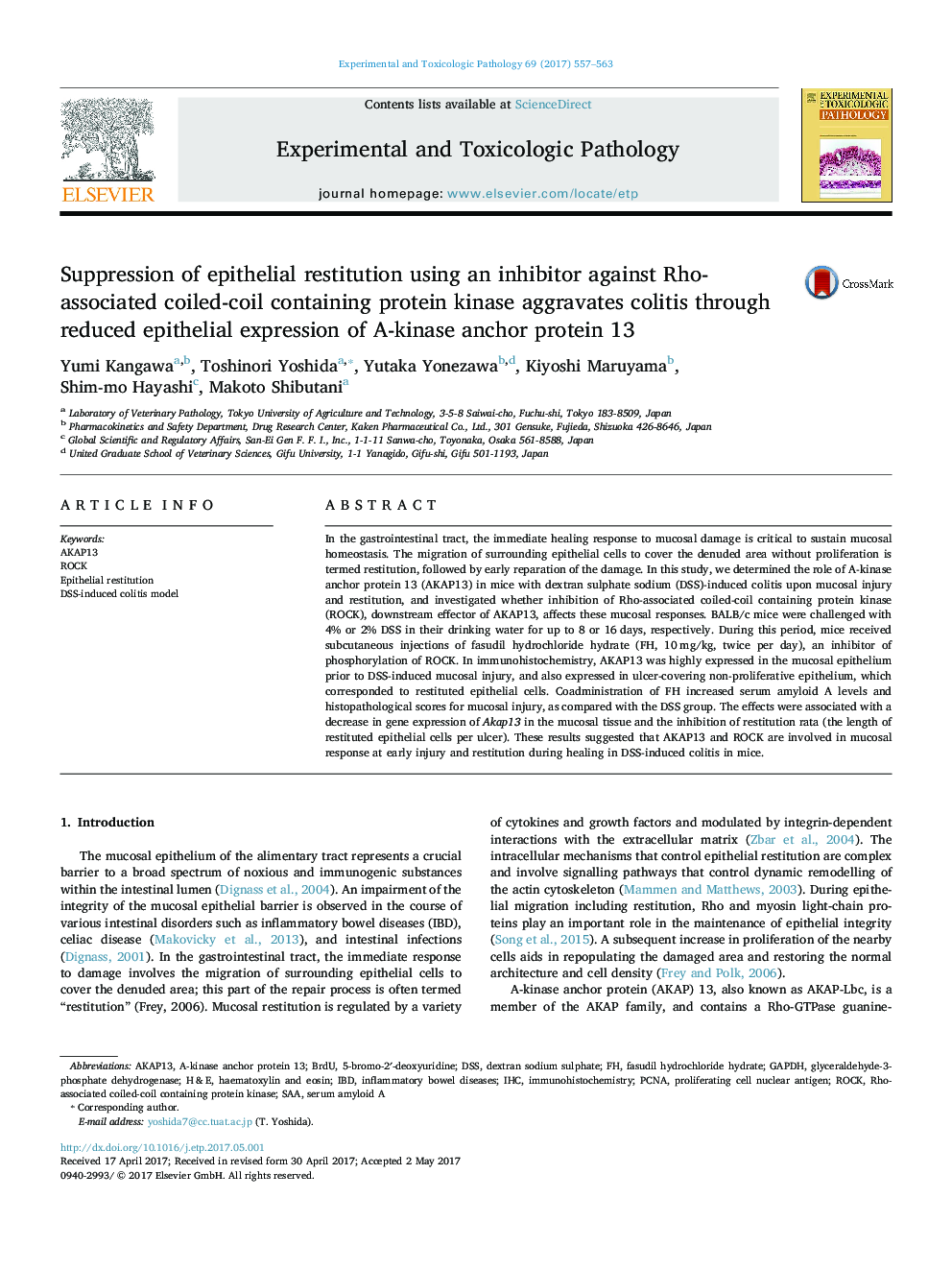| کد مقاله | کد نشریه | سال انتشار | مقاله انگلیسی | نسخه تمام متن |
|---|---|---|---|---|
| 5549726 | 1556831 | 2017 | 7 صفحه PDF | دانلود رایگان |

In the gastrointestinal tract, the immediate healing response to mucosal damage is critical to sustain mucosal homeostasis. The migration of surrounding epithelial cells to cover the denuded area without proliferation is termed restitution, followed by early reparation of the damage. In this study, we determined the role of A-kinase anchor protein 13 (AKAP13) in mice with dextran sulphate sodium (DSS)-induced colitis upon mucosal injury and restitution, and investigated whether inhibition of Rho-associated coiled-coil containing protein kinase (ROCK), downstream effector of AKAP13, affects these mucosal responses. BALB/c mice were challenged with 4% or 2% DSS in their drinking water for up to 8 or 16Â days, respectively. During this period, mice received subcutaneous injections of fasudil hydrochloride hydrate (FH, 10Â mg/kg, twice per day), an inhibitor of phosphorylation of ROCK. In immunohistochemistry, AKAP13 was highly expressed in the mucosal epithelium prior to DSS-induced mucosal injury, and also expressed in ulcer-covering non-proliferative epithelium, which corresponded to restituted epithelial cells. Coadministration of FH increased serum amyloid A levels and histopathological scores for mucosal injury, as compared with the DSS group. The effects were associated with a decrease in gene expression of Akap13 in the mucosal tissue and the inhibition of restitution rata (the length of restituted epithelial cells per ulcer). These results suggested that AKAP13 and ROCK are involved in mucosal response at early injury and restitution during healing in DSS-induced colitis in mice.
Journal: Experimental and Toxicologic Pathology - Volume 69, Issue 8, 2 October 2017, Pages 557-563